Upcoming Residency & Citizenship Changes
How the new upcoming immigration law will change residency and citizenship procedures in Argentina
Welcome Avatar! President Milei is preparing a tougher immigration law for new applicants, with fewer requirements for deportation and potential savings in terms of “free” services rendered by the Argentine state. What will change and how will it impact future applications? Let’s find out.
“If we want to be a serious country, we must also pursue immigration reform.”
— Javier Milei
In his speech at the opening of the legislative year, president Milei paved the way for what will be one of the projects the ruling party will seek to address in Congress this year.
It is well known that Argentina is one of the easiest countries to obtain citizenship — currently in about 2 years officially, but usually 3 years in practice — and residency is also not that hard. But all that might be about to change with this new initiative.
Although the date for submitting the new law was not confirmed yet, the government maintains that it will be in the coming weeks, as soon as possible.
The bill is still under discussion, and while details remain confidential, among other key guidelines, it would establish parameters to make it more difficult to obtain residency and raise the requirements for citizenship.
What the new requirements for obtaining that Argie booklet would be is still to be seen, but besides mandating permanent residency — which is basically already the case in practice — it would move the time required for naturalization to 3 years for non-Mercosur citizens (Mercosur nationals would stay be 2).
Another additional requirement could be language and culture tests, but all this would be debatable from a constitutional perspective, since that founding document only mentions the 2 years and nothing more. Again, in practice, it is already the case that most judges will want to see ties to Argentina besides your residency, which can be property in your name, children born in Argentina, an Argentine spouse and a source of income (local tax ID number is preferred here).
It is possible to do it without all these additional requirements, but changes of your application getting rejected increase substantially, and the lawyer handling the case will have to refile, hoping that the case lands on the desk of a more lenient judge the second time around.
Just to be safe, I have started my personal citizenship application today.
Autist note - In Planting your flag in Argentina you can find more information about the current citizenship requirements according to the constitution:
And this article goes over more details of Argentine citizenship and residency options:
More than naturalization becoming a lot more difficult, the adjustments Milei wants to implement seem more geared towards making temporary residency a lot less valuable in the sense of blocking rights to free healthcare and college education.
Public Education & Healthcare
Among the stricter requirements for obtaining residency is the possibility of limiting foreigners’ access to public university education in Argentina, one of the few countries in the region that still offers high-quality, tuition-free options. Currently, foreigners with a temporary residency can still get an undergrad at a public university for free.
For healthcare in public hospitals in most of the country’s provinces it is still the case that medical attention is “free”, even for tourists, without the need to show international insurance coverage.
From a fiscal perspective, it makes sense to start making some changes: it is absurd that anyone today in Argentina, with or without official residency, is able to use public healthcare services, hospitals, and complete a full undergrad at public universities without paying a dime.
This is the reason why at some universities like the Universidad de la Plata, almost 60% of medical school undergrads are foreigners (in their home country, studying medicine would be very expensive, or the admission threshold for free public university like in Brazil is too high). The Argentine taxpayer should not and cannot fund that.
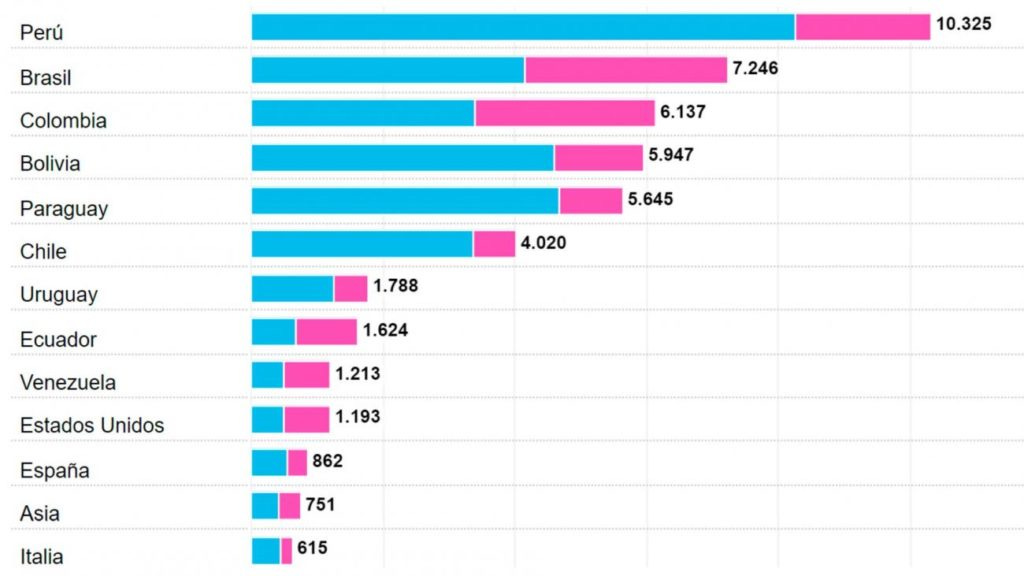
Early on during Milei’s term, some border provinces like Salta began charging non-residents for healthcare provided in public facilities. Some of these medical tourists were undergoing expensive cancer treatments and would come down to Salta from Bolivia to get treatment without paying, since these treatments are either not available in Bolivia, or would be very expensive otherwise.
Since Salta started charging for treatments and admissions, the number of foreigners who treated in public hospitals dropped by 90%. Before that, around 3,000 Bolivians crossed the river every month to get medical attendance at the cost of the Argentine taxpayers.
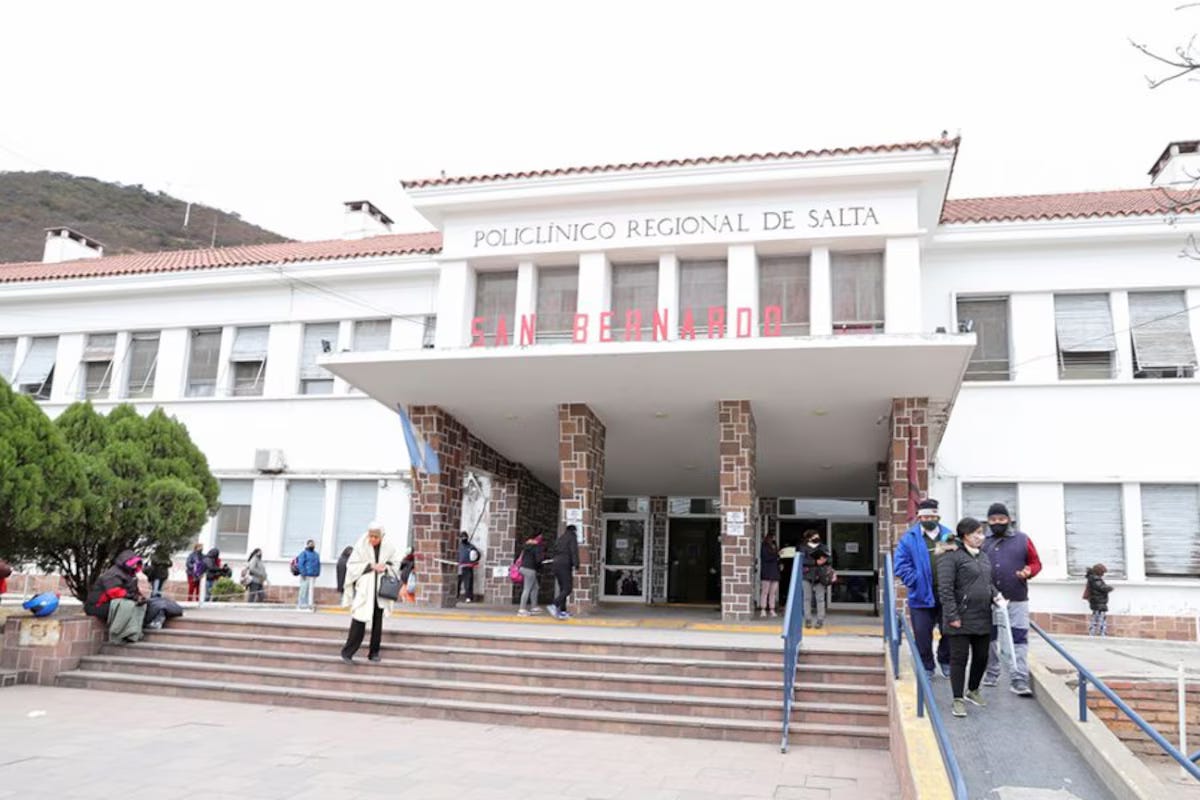
In 2024, Salta, Mendoza, Santa Cruz, and Jujuy imposed charging for healthcare, especially for hospitalizations and specialized treatments, which resulted in a decrease in healthcare tourism.
This is the model that Milei is envisioning for Argentina, and honestly it makes sense. One of my critiques has long been that public officials and folks on X do not seem to differentiate between the following terms: foreigner, resident, non-resident. These are important distinctions and saying “foreigners should pay for public services” sounds powerful, but of course this would not apply to foreigners who have official residency in Argentina, like this Patagonian rodent does.
Mercosur Residency
However, this immediately introduces a second problem and that is the Mercosur residency agreements: any Mercosur national — which is basically all of South America, — can reside legally in any other Mercosur country as long as he/she has a clean criminal record.
So if by just being an official resident public healthcare and education would be included, this would solve exactly nothing except for medical tourism as was the case in Salta with Bolivians only crossing the border for treatment. Universities would still be catering to Mercosur nationals for free, who have no problem in obtaining a temporary residency of 2 years before converting that to permanent residency — for all other nationals the timeline to permanent is 3 years.
But it seems President Milei is aware of this problem, and for the first time he specifically stressed that difference:
“Our nation has been generous to immigrants, but it's another thing to be taken for fools by our neighbors or to be a welfare center paid for by the Argentine people. We want those foreigners who are temporarily in our country or on a temporary visa to have to pay for the services they use.”
This would solve the issue, except for Brazilians, who receive permanent residency in Argentina immediately due to an additional residency agreement signed in 2003, besides the Mercosur residency rights signed in 2002 that entered into effect in 2009. So for those med students in La Plata, the problem would still be the exact same, since the bulk of those students are Brazilian.
Brazilian students can study one of the most expensive university courses in the world for free in Argentina, and then complain that their teachers speak Spanish and that it’s difficult for them to understand them. Once they receive their diploma’s, they move back to Brazil or other countries to practice medicine.
All this rightfully leads to a decent amount of frustration on the side of the Argentine tax payer footing the bill — and no, the taxes and expenses paid by the students while they are in Argentina like VAT, rent, etc, never make up for the cost of their degree for the tax payer.
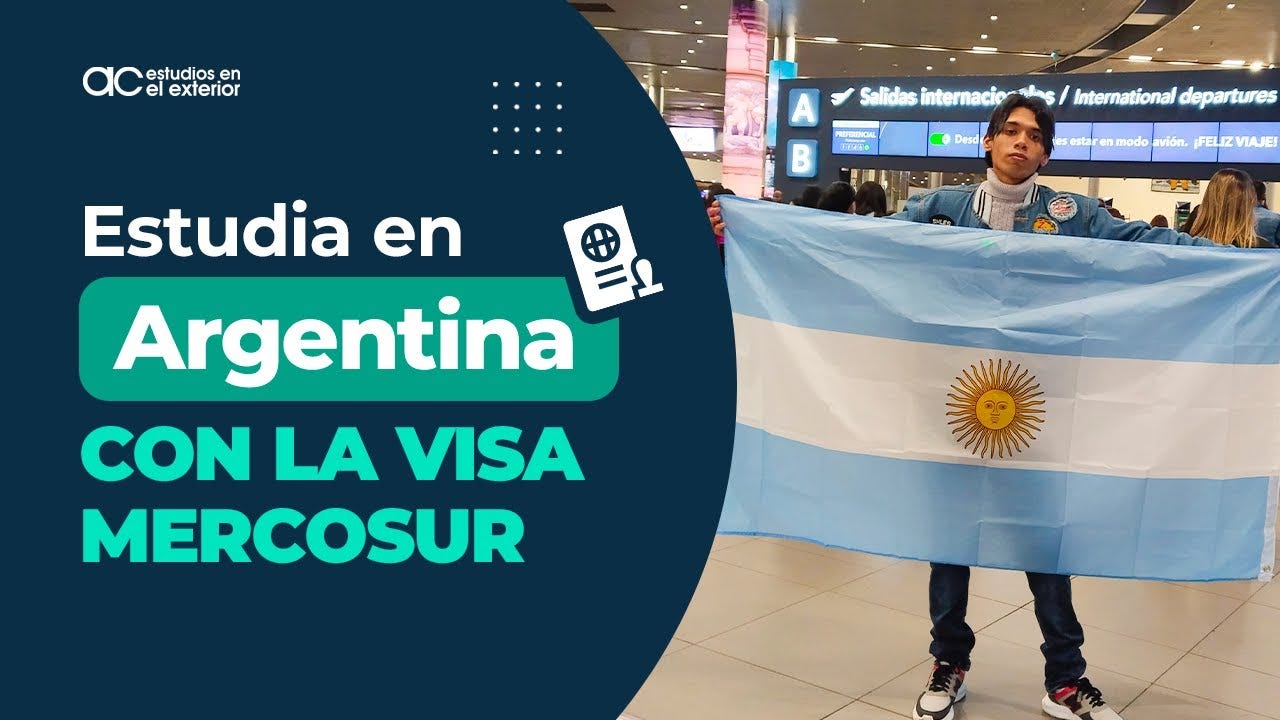
As for the current Mercosur residency requirements — the biggest problem in terms of a costly inflow for the country in terms of students — it would be very easy for Argentina to change the residency requirements, like Paraguay has done.
Neither can “block” the freedom of residency provided by the block, even less since both are founding members, but what Paraguay does and Argentina could copy is a “proof of solvency” requirement for all Mercosur citizens who apply for residency in Paraguay. For this, they need to deposit at least $5k USD in a local bank account. In Argentina’s case, a measure like this and changing healthcare and education access for temporary residents would decrease Mercosur freeloading on public services significantly.
Deportation & Border Controls
Regarding the grounds for expulsion from the country, the prevailing idea is to order the expulsion of those convicted with suspended sentences, but not foreigners with actual sentences, because that would be favoring them. The expulsion of those who cause damage to public property is also contemplated.
Currently, convictions with suspended sentences do not lead to deportation, and expulsion usually only occurs after serving a prison sentence. If a criminal is caught red-handed—that is, caught committing a crime or detained for violating the democratic system, attacking institutions, for example—he would be expelled and prohibited from re-entering the country.
Border controls with Chile, Bolivia, Paraguay, Brazil, and Uruguay will be increased to prevent the illegal entry of foreigners and with the aim of reducing crimes such as drug trafficking or the entry of contraband through unauthorized crossings. This means visa runs will become more complicated, except if you use urban cross-border transportation (IYKYK).
Furthermore, the plan is to add more radars to improve the operational efficiency of the country's international control centers. All this sounds reasonable, and it is surprising these measures weren’t in place before.
Golden Visa Moment?
With all these regulatory changes in immigration and perhaps naturalization — although no mention was made on how the acquiring of Argentine citizenship would be impacted — this would be the perfect moment to introduce a Golden Visa or even a citizenship by investment program.
So far, the pleas by this Mara have fell on deaf ears, but perhaps the regained momentum around the immigration discussion and continued net negative BCRA provides the perfect cocktail for including some more beneficial investment migration regulations.
These are my proposals for Argentina to boost its BCRA reserves under Milei's term, and the estimated yearly returns based on other Golden Visa / CBI programs:
Citizenship By Investment: $2B+ for CBI priced at $500k
Residency By Investment: $1.2B+ for Golden Visa at $200k+
Notes:
For the CBI option, instead of waiting 2-3 years and getting an Argentine passport for free after residing in the country, citizenship would be granted instantly (2-3 months process).
The current Rentista / Pensionado visa is a good passive income visa with updated amounts, but no one can obtain residency by investing in the country for example through buying a property etc.
For the residency by investment option, this would be a first real "Investor Visa" or "Golden Visa" for Argentina. The current investor visa doesn't really exist in practice and amounts have not been updated in years (still at $1.500.000 pesos or $1,300 USD).
For the residency by investment options, Argentina would have to come up with tax alternatives just for these Golden Visas: Any assets outside of Argentina will NOT be taxed by Argentina when considering your asset/wealth tax. Only assets within Argentina would be taxed.
For all options, the most important thing is to make sure the Sources of Funds procedure is very meticulous.
Some nationalities might have to be excluded from the CBI option (most countries that offer CBI do this).
In case offering a CBI is too sensitive (I can imagine opposition blocking such a proposal), then still having a Golden Visa program with residency in exchange for an investment makes total sense and the numbers would too.
The overview in Spanish is compiled in this PDF with some sources for the numbers:
Let’s see if the Milei administration will try to seek some more revenue sources besides export tariffs, taxes and the IMF.
A Golden Visa option would be a no brainer for many real estate investors in Argentina to bypass the cumbersome pile of paperwork — and time — required for the Rentista visa.
When the text of the new migration law comes out you will be the first to know.
See you in the Jungle, anon!
Other ways to get in touch:
1x1 Consultations: book a 1x1 consultation for more information about obtaining residency, citizenship or investing in Argentina here.
X/Twitter: definitely most active here, you can also find me on Instagram but I hardly use that account.
Podcasts: You can find previous appearances on podcasts etc here.
WiFi Agency: My other (paid) blog on how to start a digital agency from A to Z.


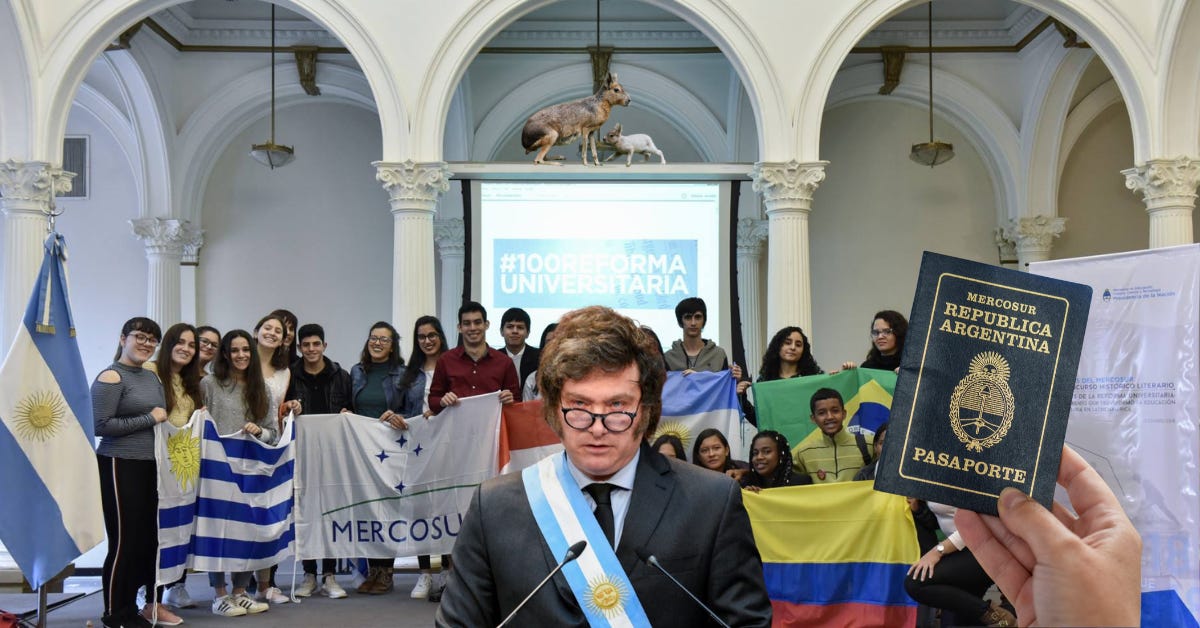

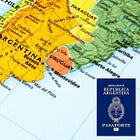
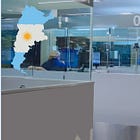
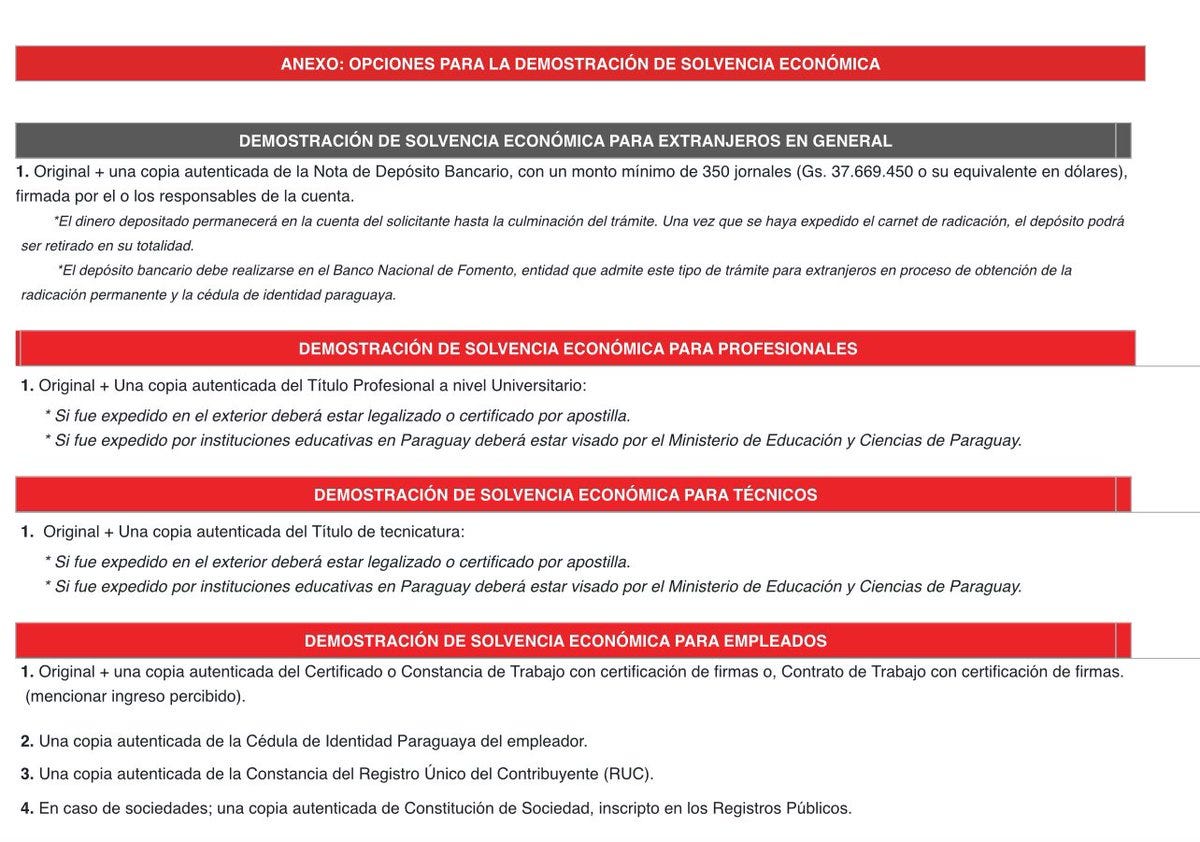
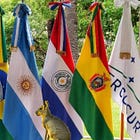

Its nuts they let that fiscal bleeding continue for so long. And for what political benefit, even? Medical tourists don't vote!
Any changes coming for the lenient tourist visas?